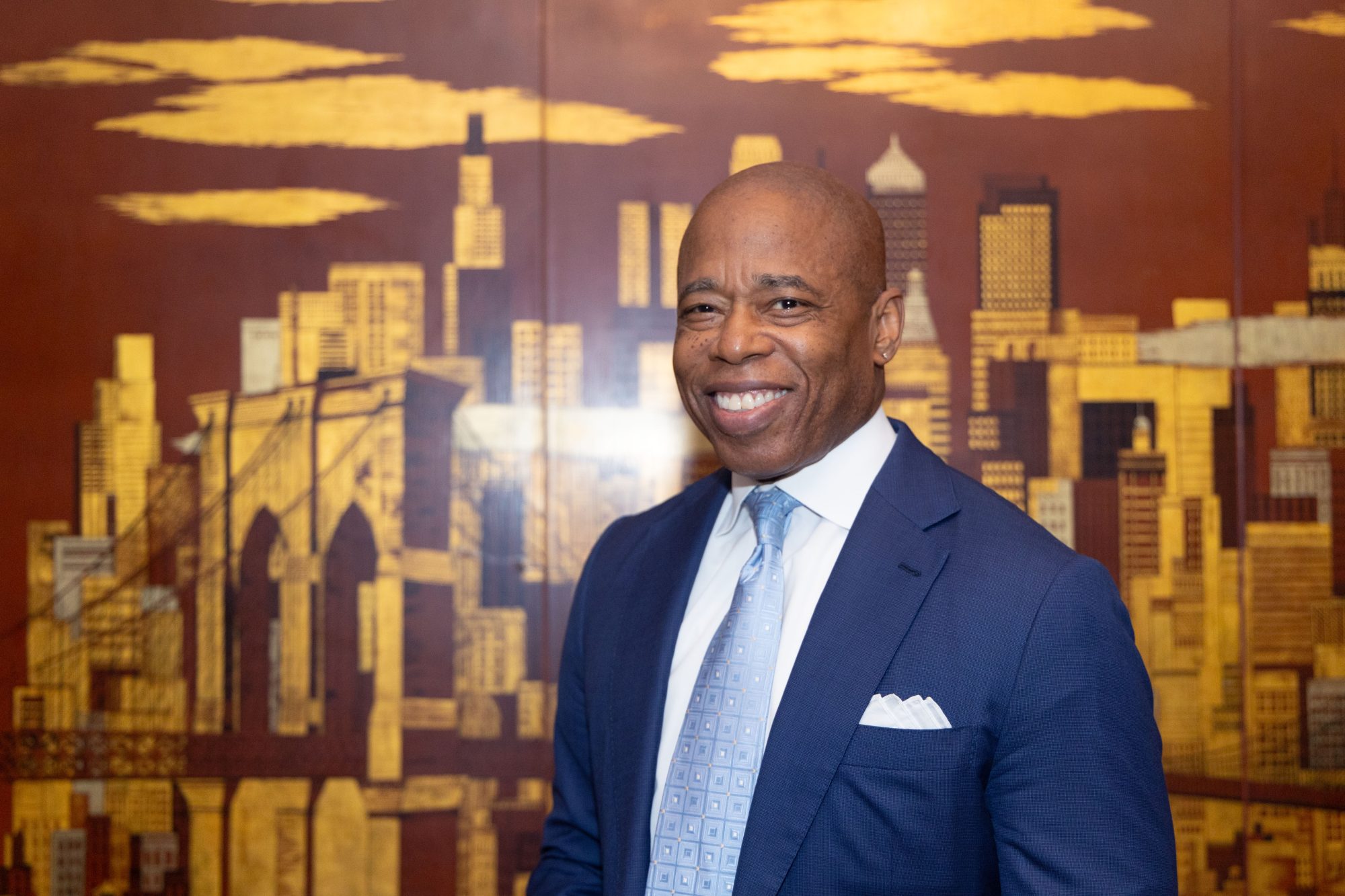
Are you feeling lucky? New Yorkers aren’t, with voters’ perceptions of the city hitting new lows in new polls. But the mayor is: Despite Mayor Adams touting his own “strong fiscal management,” the $114.1 billion budget he unveiled last week actually increases next summer’s deficit, just in time for his re-election bid.
Last Wednesday, Adams presented his second draft of the budget for the fiscal year that begins July 1. He’ll spend the next two months negotiating with the City Council over details.
Yes, it’s true that total spending, projected at $114.1 billion for next year, will fall, by 1.7%. Considering that inflation is still running close to 3%, it’s a significant cut.
Considering, too, that the Adams administration hasn’t yet managed to wring any efficiencies in government, it means New Yorkers will see real declines in day-to-day services.
For example, the mayor hasn’t added back funding that would allow libraries to re-open on Sundays and stay open on Saturdays. (He says he might, in negotiations with the council.)
But the top line is deceptive: The big story in this budget is that absent such efficiencies, the city is replacing one-time multibillion-dollar COVID-era grants from the federal government — with city-funded spending.
So, spending that comes from city tax dollars — property, sales and income taxes, mostly — will rise by 4.5%.
Since Adams took office, city-funded spending is up just shy of 17%, or $12.6 billion, in line with sky-high national inflation.
Two areas stand out, where Gotham is taking on a major new responsibility.
The first is education. During COVID, both the Trump and Biden administrations gave New York massive one-time emergency grants, pushing federal funding for NYC education from $2.1 billion in fiscal year 2020 (which ended in June 2020) to a high of $5.5 billion in 2022.
Now, that extra federal funding is vanishing. So the city is mostly replacing it with local dollars — $2.1 billion in extra city spending over the next year.
To make room for smaller class sizes mandated by the state, Gotham could puncture the bloat that Mayor Bill de Blasio added to non-teaching staffing: The former mayor added 3,030 people to civilian ed staff over eight years, for a total of 26,267.
But despite a little Adams progress — the civilian staff is budgeted at 25,451 right now — it’s estimated to go up by more than 200, to 25,691, by next summer.
The second area is migrants — and again, don’t be fooled by talk of “savings.”
City Hall likes to say that it is “saving” $500 million on “asylum-seeker” costs this year, and another $125 million next year.
But these are “savings” on what had started out as total wild guesses on projected migrant spending.
Fact is, New York City will spend $3.4 billion in its own tax dollars on “asylum seekers” next fiscal year, up sharply from $2.3 billion this year.
Add in state funding, and the total is $4.7 billion for the next fiscal year, up from $3.8 billion this year.
It’s good, to be sure, that the mayor has reversed his decision to cancel two police-academy classes.
But that still leaves us (eventually) with a police force of 35,000, the same as when he took office, even as crime remains elevated, and police resources are strained.
No modern mayor has reversed a major increase in crime without adding police officers; both former mayors Dinkins and Giuliani added to the uniformed roll to reverse the 1970s-1980s crime rise.
And Adams isn’t salvaging the police through some sort of budget alchemy.
All he’s done, after months of warning about budget deficits, is increase those deficits.
Yes, tax revenues are coming in strong, largely because of the city’s long practice of conservatively budgeting revenues.
But even with an increase in projected tax dollars, Adams projects a deficit of $5.5 billion starting next summer, up from a $5.2 billion projection in January.
That means next spring and early summer, he’ll likely be fighting a primary battle for his reelection, while proposing deep cuts (or finding some short-term gimmick to avoid them).
And he has no room for error, in a potential recession or homicide spike.
The mayor has run into bad luck, sure: Thanks to de Blasio-era profligacy and the migrant crisis, he’s the only major in memory without a major first-term project to his name.
Which only makes it stranger that he still believes in his good luck.
Nicole Gelinas is a contributing editor to the Manhattan Institute’s City Journal.














